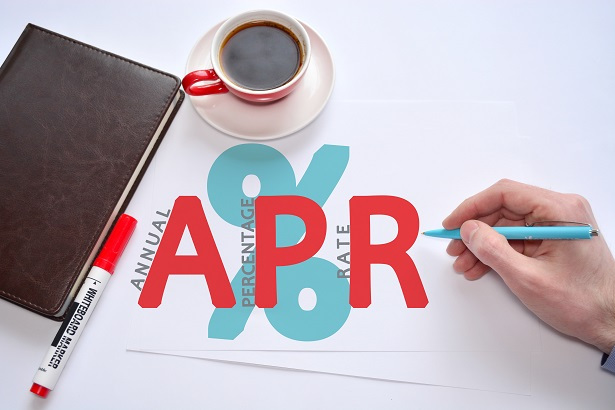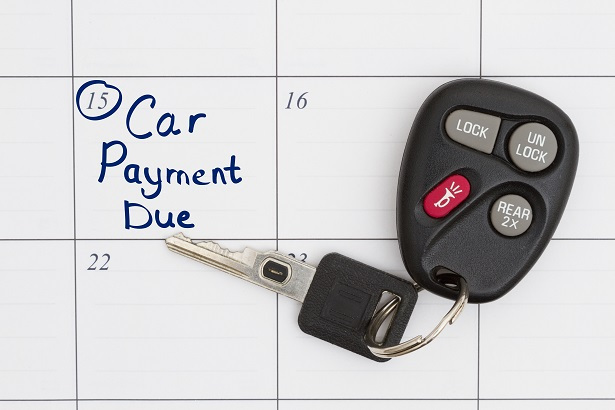Car buying can be an overwhelming process, especially for those buying a vehicle for the first time. Once you’ve settled on a make and model and are comfortable with the price, the next step will be to finalize your car loan. Acquiring a car loan at the dealership, bank or alternative lender is the part most car shoppers dread. There are many questions to consider including "will I get a fair APR rate?" and "what car loan term is best for me?" Being prepared can take the stress out of the auto financing process. There will be plenty of auto finance lingo thrown at you in the F&I office. We’ll translate it into layman's terms to help you dominate the car loan game.

1. Annual Percentage Rate (APR)
The annual percentage rate is the cost you pay each year to borrow money for the vehicle and includes all fees expressed as a percentage. Unlike interest rates which only represent the cost you pay each year to borrow money without fees, the APR is a broader view of your loan rate and can be used to compare your loan options apples-to-apples. There is a law in place that requires lenders to disclose their APR to the borrower.
2. Cosigner
A cosigner signs off on the loan as an additional party that has equal responsibility for making car payments should you fall behind. A cosigner with good credit can significantly improve the odds of approval for anyone with compromised credit. Unlike a co-borrower who has equal ownership in the vehicle, a cosigner has the responsibility for paying off the loan without taking on any ownership of the vehicle.
3. Creditworthiness
Creditworthiness determines the borrower's ability to repay the loan. Lenders look at the car shopper's credit history and credit score to assign creditworthiness. There are 3 major credit bureaus that keep tabs on your credit history including Experian, Equifax, and TransUnion. A credit score is determined by the borrower's payment history and also their credit inquiries. The most commonly used credit score is the FICO score and it can range from "Very Poor" (300) to "Exceptional (850). The higher your credit score, the better your auto loan rate will be.
Find a Car Loan for Bad Credit

4. Debt-to-Income Ratio
The debt-to-income ratio is a large component of your creditworthiness and it can make or break your chance of getting approved for an auto loan at a favorable rate. This ratio is the percentage of your debt compared to total income. Even with a higher income, lenders may not approve a car loan application if the borrower is buried in debt.
5. Down Payment
A down payment is the amount of money you pay upfront when buying a vehicle to reduce the total cost that you'll be financing. While a car down payment is not always required, there are many benefits to putting a substantial amount down. For new cars, a 20% down payment is recommended. For car buyers with fair or poor credit, a large down payment can improve the chances of approval.
6. Finance Charge
The finance charge is the total amount of interest you will incur over the life of your auto loan. When you sign off on an auto loan, you should calculate the total amount you'll pay in interest instead of focusing only on the monthly payments. A long term car loan might sound good in theory, but you may be overpaying by hundreds, if not thousands of dollars in interest.

7. Loan Term
The loan term is the amount of time you'll be making payments on the vehicle. Common loan terms include 24 months, 36 months, 48 months, 60 months, 72 months and 84 months (anywhere from 2-7 years). Long loan terms will come with lower monthly payments, but they also require you to pay more in interest over the lifetime of the loan.
8. Origination Fee
Origination fees are charged upfront by some auto lenders to set up the loan. These fees fall into the category of surprise costs you may not expect when buying your vehicle. The fees can be a flat rate or calculated as a percentage of the total loan. When shopping around for your car loan, make sure you're clear on all the costs of going with each lender. Some lenders will be willing to negotiate on the origination fees.
9. Pre-Approval
Auto loan pre-approval means a lender offers you a loan amount and interest rate to purchase a new or used car before you go to the dealership. You can choose to accept the offer or simply pass on it. By applying for pre-approval from multiple lenders, you'll be able to compare auto loan rates from each and choose the best offer. It will also give you leverage once you go into the dealership to buy your car.
10. Refinance
Auto loan refinance allows you to apply for a change to your interest rate or terms of your loan. Oftentimes, car buyers get stuck in an auto loan with interest rates, a loan period, or monthly payments they aren’t thrilled about. Auto refinancing is a way to get out from under a bad car loan situation and make your life more manageable. Borrowers who have improved their credit score can often refinance their loan for a significantly lower rate.


